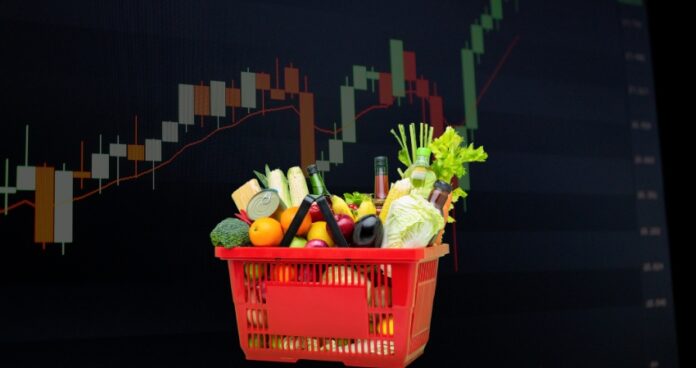The Weekly Sensitive Price Indicator (SPI) shows a marginal 0.33% decrease in inflation for the Combined Group in the week ending on October 26, 2023. This marks the second consecutive weekly decline, following a 1.7% drop the previous week. However, compared to the same period last year, the SPI exhibited a significant increase of 29.65% due to higher prices of energy and food items.
Data from the Pakistan Bureau of Statistics (PBS) indicates that the Combined Index for the week stood at 277.11, slightly down from 278.04 on October 19, 2023. This is a significant increase from the figure of 213.74 recorded a year ago on October 27, 2022.
The key contributors to the year-on-year weekly inflation were surging gas prices, rising by a remarkable 108.38% during the first quarter of the financial year 2023-24. Cigarette costs also saw an increase of 94.46%.
Similarly, essential food items witnessed notable price hikes as Chilli powder increased by 84.11%, Basmati rice (broken) rose by 78.51%, wheat flour prices surged by 77.49%, and sugar witnessed a 63.22% increase. Irri-6/9 rice prices climbed by 62.83%, gents sponge chappals by 58.05%, jaggery (gur) by 57.73%, and powdered salt by 54.84%, all compared to the same week last year.
As per PBS data, out of 51 items, 14 experienced increased average prices, 17 saw a decrease, and 20 remained stable.
Examining the weekly SPI percentage change across income groups, a decrease was evident in all quantiles, ranging from 0.25% to 0.36%. The Lowest Income Group recorded a 0.25% decrease, while the highest income group saw a decrease of 0.33%.
On a yearly basis, the SPI change across different income segments showed an increase in all quantiles, ranging from 28.66% to 30.09%. The Lowest Income Group experienced a yearly SPI increase of 28.66%, while the highest income group recorded an increase of 29.61%.
Specific commodity prices also fluctuated as Sona urea averaged at Rs3,785 per 50 kg bag, showing a slight increase of 0.01% compared to the previous week and a significant 54.63% increase year-on-year. Meanwhile, the average price of cement was recorded at Rs1,196 per 50 kg bag, indicating a marginal decrease of 0.27% from the previous week but marking a 15.79% increase compared to prices from the previous year.
Despite robust agricultural production, prices for essential commodities like wheat flour, rice, and sugar continue to rise, raising questions about the effectiveness of government price control measures and export promotion policies.
Experts anticipate ongoing inflation, with a potential 193% increase in gas prices slated for November 1, 2023. This increase will impact various industrial and commercial gas consumers, possibly leading to price hikes for end-consumers as these businesses adjust their prices. Notably, steel, cement, and fertilizer manufacturers are expected to revise their product prices upward, further increasing costs for crop production and construction materials in the near future.

























It’s excellent page im your follower realy nice.
I absolutely do not understand why the article refers to a “fraud” as a “mistake”consistently. The company committed fraud to seriously advance its business and some in the company got cold feet after that and tried to save themselves from potential consequences. Such scams are ruinous for investors and for the ecosystem, especially in the financial services space. Giving a license to them would be akin to giving a license of financial manipulation.